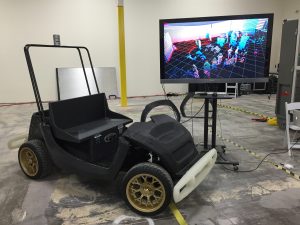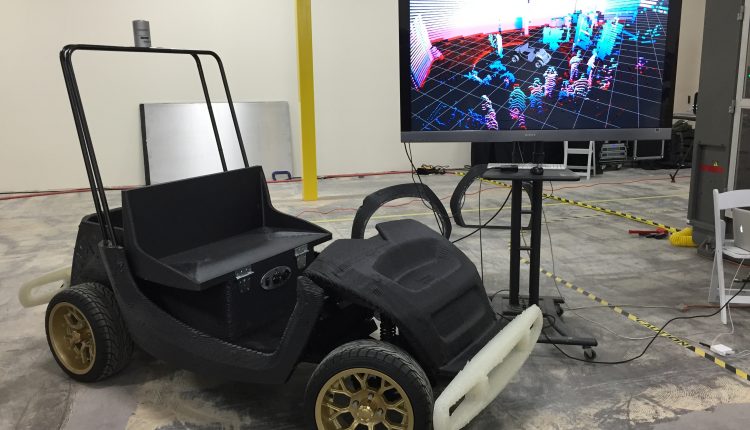Researchers Create 3D-Printed Autonomous Smart Cars To Pick Up Drunk University Students
Imagine being unable to drive home after having one too many alcoholic beverages. You’d need to call a taxi or have one of your friends drive you home.
Well, University of Michigan researchers thought it would be really cool to have an autonomous, 3D-printed electric vehicle pick you up instead.
The researchers aren’t just thinking of applications in designated driving, though, the low-speed SmartCarts could ship students and staff to class, labs and offices as well.

“Think Uber, but with low-speed, autonomous cars,” said Edwin Olson, an associate professor of electrical engineering and computer science who leads the project. “The goal of SmartCarts is for us to begin understanding the challenges of a transportation-on-demand system built around autonomous cars.”
In an early step toward that goal, U-M researchers today received a custom, 3D-printed vehicle from technology company Local Motors. The company unveiled both the low-speed vehicle and its first 3D-printed road-ready car at a press conference in Tempe, Ariz.
SmartCarts have a power train modeled on that of a traditional golf cart, but the rest of the vehicle has been uniquely designed for this project. The body is 3D printed out of Lego brick plastic and reinforced with fiber for strength.
They went with a 3D-printed model so that if they needed to upgrade any components, they could just print one in a matter of hours.
“The advantage is speed of design and manufacturing. The 3D printing process and our co-creation process lets us and our partners be creative fast,” said Corey Clothier, Local Motors’ autonomous vehicle lead. “We’re excited to partner with the University of Michigan on this. They’re real leaders in autonomous systems and their approach on this is brilliantly simple. We look forward to seeing it unfold.”
U-M’s vehicle was just introduced to the campus and two more will arrive next week. Over the next year, the researchers will develop autonomy capabilities and set up a mobile-phone interface so the vehicles could sync up to a smartphone app. They’ll be testing the vehicles in Mcity, the autonomous and connected vehicle test site that’s operated by the Mobility Transformation Center that U-M is partnered with.
“On this project, we’re deliberately ‘cheating’ on the autonomy as much as we can—not because we can’t build autonomous cars, but because we need a working test bed now so that we can begin to look at all of the other challenges of an on-demand system” said Olson .
Some challenges that they’ll have to face in their tests include: understanding passengers’ preferences and expectations, coordinating the routes, and balancing supply and demand.
The technology has other potential benefits in places like corporate campuses, amusement parks, airports, and assisted living communities.
Story via University of Michigan.

